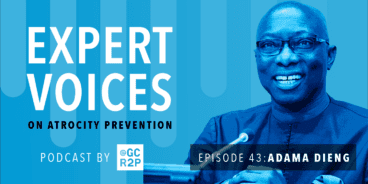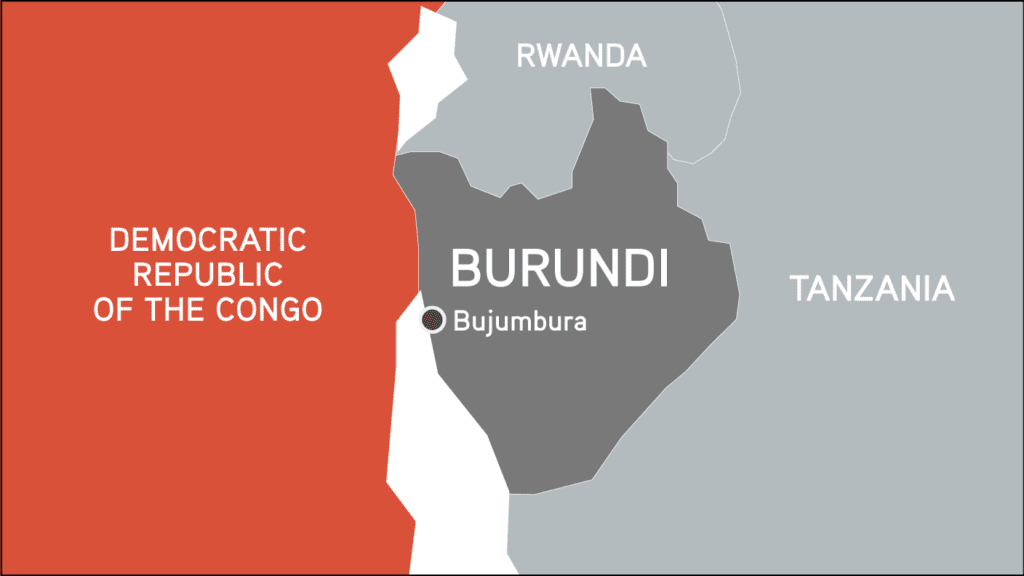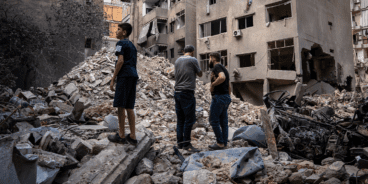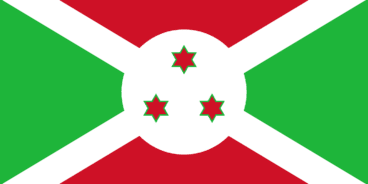
Burundi

The government in Burundi must address structural risk factors for mass atrocities, including ending state-led repression, persecution and impunity for past atrocities.
BACKGROUND
Burundi has endured a protracted political crisis since late President Pierre Nkurunziza announced that he would seek a third presidential term in 2015. A failed coup and subsequent widespread protests and violence between 2015-2017 resulted in more than 1,200 people killed and 10,000 arbitrarily detained. Since then the government of the ruling party, Conseil national pour la défense de la démocratie-Forces de défense de la démocratie (CNDD-FDD), together with its youth wing, the Imbonerakure, has persecuted alleged government opponents and civil society activists. The UN Human Rights Council (HRC)-mandated Commission of Inquiry (CoI) on Burundi found that potential crimes against humanity have been committed since April 2015, including extrajudicial killings and summary executions, disappearances, sexual violence, arbitrary detention and torture. Almost 276,000 Burundian refugees remain in neighboring countries.
On 20 May 2020 Burundians voted for a new president, electing the CNDD-FDD candidate Évariste Ndayishimiye. In the lead up to the May elections, the government intensified its repression of alleged opponents, as well as journalists and human rights defenders. Such acts were primarily carried out by the Imbonerakure with members of the National Intelligence Service and police. Following the sudden death of President Nkurunziza on 8 June, Ndayishimiye was sworn in on 18 June.
During September 2020 the CoI warned that despite the change in president, all structural risk factors of atrocity crimes remain, including the governance system under the CNDD-FDD, the appointment of individuals under international sanctions for serious human rights violations to senior government positions, the continued operations of the Imbonerakure, and the refusal to release all detained human rights defenders. The CoI reiterated this warning in September 2021, noting that the National Intelligence Service, police and Imbonerakure continue to arbitrarily arrest, disappear, torture and kill perceived political opponents, as well as individuals accused of collaborating with armed opposition groups, some of whom operate in exile.
ANALYSIS
President Nkurunziza’s third term was marked by increased authoritarianism and large-scale human rights violations and abuses by state agents and the Imbonerakure, including potential crimes against humanity. His term was also regarded by many as violating the 2000 Arusha Peace Agreement, which ended a civil war that claimed over 350,000 lives between 1993-2005.
While the election of President Ndayishimiye offered an opportunity to restore peace and stability in Burundi, the new government has continued to perpetrate abuses and failed to reverse existing patterns of hostility towards UN mechanisms and institutions.
The government has not held perpetrators of past crimes accountable or implemented structural reforms to prevent their recurrence.
The government is failing to uphold its responsibility to protect all Burundians, regardless of ethnicity or political affiliation.
INTERNATIONAL RESPONSE
During October 2017 Burundi withdrew from the Rome Statute. Prior to withdrawal, the International Criminal Court opened an investigation into crimes committed in Burundi from April 2015 until October 2017.
On 6 October 2020 the HRC renewed the mandate of the CoI for an additional year. The government previously threatened the Commissioners and ceased its cooperation with the UN Office of the High Commissioner for Human Rights. The new government has thus far refused to cooperate with the CoI.
On 29 October 2020 the European Union (EU) renewed travel bans and asset freezes on four Burundians for serious human rights violations and incitement to violence.
On 4 December the UN Security Council decided to end mandatory reporting on Burundi, while noting continued concern about human rights violations and abuses and the need to hold perpetrators accountable.
NECESSARY ACTION
The government must end the repression of its political opponents. It should also release all human rights defenders, journalists and political prisoners, disarm and demobilize the Imbonerakure, and engage in inclusive dialogue with civil society and opposition parties. The government should ensure credible investigations into all human rights violations and abuses since 2015 and ensure that perpetrators are held accountable, regardless of affiliation.
Any measures to lift targeted sanctions or expand international cooperation must be based on tangible progress on human rights and accountability, including through implementing measures recommended by the CoI. The UN Human Right Council must ensure continued scrutiny of the situation in Burundi through renewing the CoI or creating a similar international monitoring mechanism mandated to investigate atrocity crimes and provide regular risk assessments.
Related Content


Atrocity Alert No. 414: Lebanon, Ethiopia and the UN Human Rights Council
